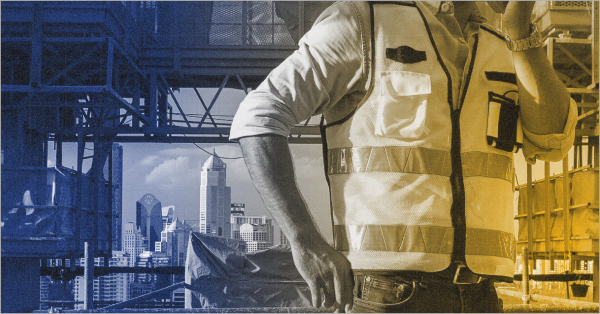In today’s dynamic business environment, managing risks is crucial for organizations spanning diverse sectors. As industries evolve, the need for comprehensive insurance coverage becomes increasingly evident. Enter the Industrial All Risk (IAR) policy, an essential tool in mitigating risks. The IAR policy, short for Industrial All Risk Policy, provides an extensive scope of coverage beyond traditional fire and special peril policies. It safeguards businesses against a broad spectrum of risks including fire, burglary, accidental damage, equipment breakdown, and interruptions to business operations.
The IAR Policy, or Industrial All-Risk Policy, is a comprehensive insurance solution tailored to safeguard industrial assets from unforeseen events. It falls under the umbrella of property insurance, offering coverage for a wide array of risks, barring those explicitly excluded from the policy terms. This insurance product is engineered to shield businesses from financial losses stemming from damages to their assets due to accidents, natural calamities, theft, or other unexpected occurrences. Its significance is particularly pronounced in industries characterized by elevated risk levels such as manufacturing, construction, and transportation.
A typical IAR Policy encompasses various coverages, including property damage, business interruption, liability, and associated risks. Property damage coverage extends protection against harm inflicted upon buildings, equipment, and other owned assets of the business. Business interruption coverage ensures compensation for lost income and incurred expenses resulting from a covered event that forces the temporary cessation of business operations. Additionally, liability coverage shields the business from claims brought forth by third parties for injuries or damages attributable to the business or its products.
Furthermore, an industrial all-risk policy can be customized to suit the unique requirements of a specific business. For instance, businesses operating in flood-prone regions may opt for additional coverage against flood damage, while those heavily reliant on technology may seek protection against cyber risks. In essence, an industrial all-risk policy serves as a crucial asset for businesses seeking comprehensive protection against a broad spectrum of risks and uncertainties.
Industrial all-risk policies commonly cover the following areas:
- Buildings and structures
- Machinery and equipment
- Stock and inventory
- Raw materials and finished goods
- Loss of profits resulting from business interruption
- Liability for third-party injury or property damage
Who can take Industrial All Risk Insurance Policy?
Industrial risks with a total Sum Insured of Rs. 100 crores or more across one or multiple locations in India qualify for an Industrial All Risk Policy, excluding risks accessible under the Petrochemical Tariff. This policy offers comprehensive coverage against all perils and risks, except those explicitly excluded within the policy terms.
Benefits of Industrial All-Risk (IAR) Insurance for Businesses
Industrial All-Risk Insurance (IAR) policy offers numerous benefits for businesses, making it a valuable asset in risk management strategies. Here are some key advantages:
- Comprehensive Coverage: IAR insurance provides extensive coverage against a wide array of risks, including property damage, third-party liability, business interruption, equipment and machinery damage, and more. This holistic protection simplifies risk management by eliminating the need for multiple policies.
- Risk Mitigation: By mitigating financial risks associated with unforeseen events like natural disasters, fires, theft, and accidents, IAR Insurance safeguards business assets, operations, and continuity.
- Business Continuity: In case of property damage or business interruption, IAR insurance offers financial support to facilitate swift recovery and resume operations, minimizing disruptions and revenue loss.
- Third-Party Liability Protection: Businesses benefit from IAR insurance’s coverage of legal liabilities arising from bodily injury or property damage to third parties caused by their operations, shielding them from potential lawsuits and associated costs.
- Equipment and Machinery Coverage: IAR insurance protects businesses heavily reliant on machinery and equipment by covering damage, breakdown, or theft, ensuring uninterrupted production and minimal downtime.
- Construction Project Protection: Construction companies find IAR insurance indispensable for protecting construction projects, equipment, materials, and liabilities that may arise during the process, thereby mitigating project-related risks.
- Flexibility and Customization: IAR policies can be tailored to meet specific business needs, allowing for a customized approach that addresses industry or company-specific risks.
- Cost-Efficiency: Bundling multiple coverages into a single policy makes IAR insurance a cost-effective risk management solution compared to purchasing separate policies for different aspects of operations.
- Confidence and Investment Attraction: Robust insurance coverage instills confidence in investors, lenders, and business partners, facilitating easier access to funding and business growth opportunities.
- Compliance with Contractual Obligations: Many business contracts require specific insurance coverage, including IAR insurance, ensuring compliance with contractual obligations.
- Peace of Mind: IAR insurance provides peace of mind to business owners and stakeholders, offering financial protection against various risks that could otherwise jeopardize the company’s future.
Exclusions in IAR Policy
While IAR policies offer broad coverage, certain exclusions apply, including:
- War and Terrorism
- Nuclear Risks
- Intentional Acts
- Wear and Tear
- Pollution
- Loss of Income
- Employee Dishonesty
Policyholders should carefully review their policies to understand these exclusions and consider additional coverage options if needed.
Sum Insured and Premium: IAR Policy
Section I (Material Damage) of the policy covers buildings, machinery, furniture, fixtures, fittings, and electrical installations at reinstatement value for buildings and market value for stocks. The Sum Insured for machinery breakdown risk is calculated by subtracting the value of piping and cabling from the Sum Insured of plant and machinery declared under Fire Insurance.
Section II (Business Interruption) Sum Insured is based on Annual Gross Profit, with the insured selecting the desired Indemnity Period. The Indemnity Period reflects the maximum duration of business interruption coverage, tailored to the insured’s activities.
Premiums for property insurance policies vary based on chosen coverage, risk exposure, property maintenance, and selected deductibles.
How to Select the Right Industrial All-Risk (IAR) Policy
Choosing the appropriate industrial all-risk policy is essential for safeguarding your business against unforeseen events effectively. Here’s a guide to help you make an informed decision:
1. Assess Business Risks: Begin by evaluating the risks your business faces, such as fire, theft, natural disasters, and accidents. Consider the potential financial impact of these risks on your operations.
2. Understand Policy Terms: Familiarize yourself with the terms of the policy, including coverage limits, deductibles, and exclusions. Carefully review the policy documentation and seek clarification on any unclear points.
3. Coverage Needs: Determine the specific coverage needs of your business based on its industry, operations, and assets. Ensure that the policy offers comprehensive coverage for all relevant risks, including property damage, business interruption, liability, and more.
4. Regulations and Requirements: Be aware of any legal regulations or contractual obligations that mandate specific insurance coverage for your business. Ensure that the chosen policy meets all necessary requirements.
5. Customization Options: Look for policies that offer flexibility and customization options to tailor coverage according to your business’s unique needs and risk profile. Consider additional endorsements or riders to enhance coverage where needed.
6. Insurance Provider Reputation: Choose a reputable insurance provider with a track record of reliability and excellent customer service. Research customer reviews, ratings, and testimonials to gauge the insurer’s reputation.
7. Consultation: Seek advice from insurance brokers or agents who specialize in commercial insurance. They can provide valuable insights, help you understand your options, and assist in selecting the most suitable policy for your business.
8. Cost Consideration: While cost shouldn’t be the sole determining factor, compare premiums from different insurers to ensure you’re getting competitive pricing for the coverage offered. Balance affordability with the level of protection provided.
Conclusion:
Selecting the right industrial all-risk policy requires careful consideration of your business’s unique risk profile, coverage needs, and budgetary constraints. By assessing risks, understanding policy terms, and consulting with insurance professionals, you can make an informed decision that adequately protects your business against potential threats and ensures its long-term resilience and continuity.







